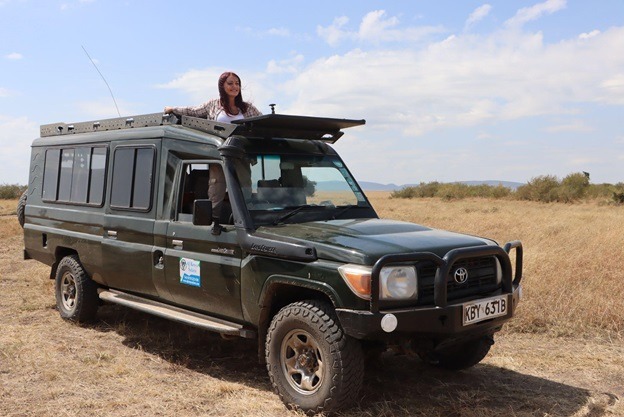Travelling to a new destination can be exciting or intimidating. It all depends on how you choose to look at it.
However, the good news is that more often than not, being adequately prepared enables you to turn apprehension into excitement by giving you the confidence of knowing what to expect.
As with any other destination, Kenya has a few simple prerequisites to be met by every inbound traveller. We shall discuss these shortly.
Also, we shall look at practical yet straightforward personal organization tips you could use to ensure you are adequately prepared for the trip ahead. These are ideas that make your travel easier, hassle-free and more comfortable.
Here are five nifty travel tips for first-time travellers to Kenya.
1. Researching your destination
Aside from choosing to vacation in Kenya, it is also necessary to decide which of its numerous attractions will make it to your itinerary.
As a premier wildlife destination, the country has an array of animals with tons of places where you can see them. That includes 24 national parks, a host of private conservancies, and 15 national reserves.
The most popular Kenya wildlife safari destinations are the Maasai Mara Game Reserve, the Amboseli National Park, and Lake Nakuru National Park.
In most Kenyan National parks, you get a chance to see the Big Five (Lions, Elephants, Buffaloes, Leopards, and Rhinos) and scores of other species.
However, it is only in the Maasai Mara that you get to witness the annual wildebeest migration.
Marine tourism is also ably represented with six marine parks and a stretch of world-class beaches. The Kenyan coast also has plenty of historical sites and good old town charm.
Researching and formulating a rough itinerary will help you know which part of the country you wish to visit and help you plan accordingly. While you’re traveling in Kenya, you might also come across some beautiful necklaces and bracelets made of beads being sold. Learn more about these in our article, What Do the Colors and Patterns in Maasai Beadwork Represent?
2. Picking a tour agent
Having devised a rough idea of what you want out of your safari experience, it is now time to bring in the experts.
A native tour agent will advise you on the best time to visit Kenya’s attractions and help you craft an itinerary. Gone are the days when you had to rely on pre-designed itinerary templates!
Today, you can have a customized safari experience on a trip to Kenya, thanks to the country’s professional tour companies.
Their native guides know the country like the backs of their hands. They will share tips and help you polish that itinerary.
Legitimate tour agents are duly registered with the Ministry of Tourism and have ascertainable office addresses.
In addition, they maintain professional websites, and it is easy to find out how they have fared with past clients by looking at their online reviews.
Consulting and crafting your trip through a tour agent also avails you of discount options when it comes to accommodation.
Most agents have formed strategic partnerships with some leading hotels where their clients are extended special discounts.
When it comes to the choice of safari vehicle, you can opt for an off-road vehicle such as the Land Rover Defender, Toyota Land Cruiser, Jeep Wrangler, or the Toyota Fortuner.
Alternatively, if the budget is a huge constraint, opt for the cheaper Safari Van.
3. Budgeting
Based on your budget, the tour agent will also advise you on how to reap maximum benefits from the safari experience.
They will point out alternatives that you might have missed. For instance, they will tell you whether a road trip to the Maasai Mara from the capital is better than a flight and vice versa.
During the budget process, you will also need to consider things such as travel and medical insurance. Does your current provider cater for it?
If not, what are the available budget-friendly options?
Travel insurance will safeguard you against the loss of items when travelling and cater to any medical issues you may encounter while on vacation.
The budgeting process will also allow you to know how much you are likely to spend on international flights and when to get the most affordable trips.
It is also an opportunity to compare different airlines and their offers.
4. Picking your wardrobe
Kenya enjoys tropical weather for most of the year. Save for May, June, and July, when some rains are expected, the country is favourably warm.
The clothes you pack should be lightweight items such as cargo shorts/pants and t-shirts, with the occasional sweater for chilly evenings.
For visitors planning to go on game drives and wildlife safaris, it is best to carry tan and green coloured outfits which help you blend with the environment.
Bold colours such as red tend to be easily noticed by the wildlife and can, in some cases, make the animals shy away.
Be sure to also incorporate comfortable hiking shoes or sneakers for an easier time walking in the wild.
Also, remember your sunscreen lotions since you shall probably be venturing outdoors quite a bit, be it at the beach or in the Mara savannah.
Hats are also an excellent addition to shield your face from direct sunlight.
5. Medical requirements
All visitors going into Kenya are expected to have undergone the usual Covid-19 testing and been certified negative.
You shall be expected to produce this on arrival. It is also mandatory for you to have a yellow fever certificate as evidence that you received the Yellow fever jab.
Besides these mandatory medical procedures, it is equally advisable that you carry some anti-malaria medication.
Your doctor can advise you on any preemptive steps you can take to prevent contracting malaria.
Nonetheless, please note that all reputable accommodations in Kenya supply a mosquito net as a standard feature and you needn’t worry about being bitten by pesky mosquitos while you sleep.
However, as an additional precaution, you can purchase bug repellent cream as it keeps you from insect bites whenever you venture outdoors.
For visitors with any pre-existing medical conditions, please remember to stock up and carry your prescribed medicine with you.


